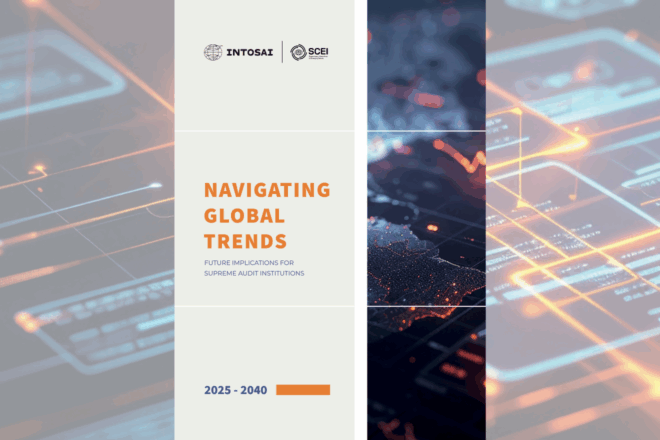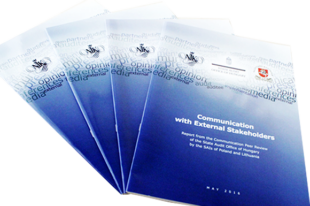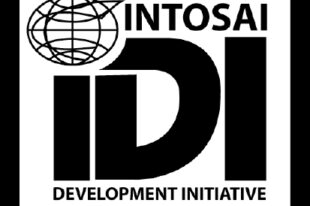
Authors: Luciano Santos Danni (Federal Court of Accounts – Brazil), Sharaelle A. Grzesiak (US Government Accountability Office), Carlos A. Sampaio Freitas (Federal Court of Accounts – Brazil), Oana Cristina Dumitrescu (European Court of Auditors), Ariane Holezek (Austrian Court of Audit), Anna Kennedy-O’Brien (UK National Audit Office), Shourjo Chatterjee (INTOSAI Development Initiative), Anna Maria Zygierewicz (European Court of Auditors), and Adel Mohamed Ahmed Rizk (Accountability State Authority – Egypt).
Introduction
According to the United Nations Development Programme (UNDP) Global Centre for Public Service Excellence, foresight explores possible and probable futures, generating insights that enable transformative actions in the present, which are compatible with the unfolding future.
In an era of rapid transformation, foresight has become essential for public institutions to anticipate and respond to emerging challenges and opportunities. For INTOSAI and Supreme Audit Institutions (SAIs), this strategic tool ensures relevance and resilience in addressing complex, interconnected global trends.
By integrating foresight into their operations, SAIs can provide insight, strengthen accountability, and support good governance, ensuring they remain valuable partners in the pursuit of sustainable and equitable development for the future.
The report “Navigating Global Trends: Future Implications for Supreme Audit Institutions”, approved by the INTOSAI Governing Board in October 2024, presents possible implications for INTOSAI and the SAI community arising from major drivers of change that will continue to affect the world over the next 15 years, reshaping societies and governance.
Methodology
The Global Trends Report gathers information from reports issued by multilateral institutions and think tanks, as well as insights from INTOSAI working bodies and Regional Organizations.
It primarily aims to provide approaches and inputs for INTOSAI’s strategic planning, but is also intended to support SAIs in preparing for emerging issues, especially those SAIs with limited resources to conduct their own foresight initiatives.
The following provides an overview of the seven mega-trends identified and outlines the implications for consideration, while the full report offers lenses to explore a wider perspective.
1. Erosion of Trust
Although studies show that people want to trust institutions, trust is gradually declining across the globe, while conspiracy theories are on the rise. Trust can vary between institutions within the same country and among different countries. The erosion of trust in institutions is dangerous because it can lead to the erosion of democratic values and human rights.
- Implications for Governments and Societies: Weakened governance; misinformation proliferation; reduced civic engagement; international cooperation at risk.
- Implications for SAIs: Challenges in ensuring transparency and SAI independence; need for effective communication; enhancing citizen engagement to mitigate mistrust.
2. Economic Challenges and Debt
The global economy is currently navigating a complex and volatile landscape, characterized by a number of emerging trends and challenges. Key drivers influencing these dynamics include the lingering economic impact of the COVID-19 pandemic, ongoing international geopolitical tensions, the urgent need for a transition to sustainable economy, the rapid emergence of new technologies, and an all-time high in global debt, including borrowing by governments, businesses and individuals.
- Implications for Governments and Societies: Need to balance the demands of debt service with development spending, alongside efforts towards sustainable production and consumption.
- Implications for SAIs: SAIs need to be prepared to audit government initiatives to promote sustainable economic development and growth, as well as public debt management to ensure accurate reporting and responsible fiscal practices.
3. Digital Transformation of Governments and Society
Digital technologies are revolutionizing governance, economies, and citizen interactions. The rapid and profound advances are expected to further accelerate changes in scientific development and to offer unprecedented opportunities for efficiency, personalized services, and tackling complex problems.
However, these developments also carry major societal risks, ultimately presenting potential threats to human values and interests.
- Implications for Governments and Societies: Enhanced service delivery; cybersecurity threats; cybersecurity versus civil liberties; digital exclusion risks.
- Implications for SAIs: SAI digital transformation; auditing of digital systems; capacity-building for IT audits; addressing data privacy concerns.
4. Climate Change and the Triple Planetary Crisis
Current research indicates that multiple planetary boundaries have been breached, marking the onset of a “triple planetary crisis”1 that includes climate change, biodiversity loss, and pollution. Together, these crises have profound social and economic implications, affecting every aspect of life on earth.
- Implications for Governments and Societies: Increased risk of disaster and high associated costs; opportunities and risks linked to the green transition; social impacts of the crisis, including mass migrations.
- Implications for SAIs: Ensuring responsible resource management; collaboration on climate financing; auditing adaptation measures.
5. The Widening Demographic Gap
The demographic gap refers to the disparity in population characteristics, particularly age distribution, across different regions or countries. In the next decade, the demographic gap is expected to widen significantly due to varying birth rates, aging populations, and migration patterns. This divergence is set to shape global economic, social, and political landscapes in profound ways.
- Implications for Governments and Societies: Political unrest and youth unemployment; immigration tensions; economic challenges; more demand for international aid and cooperation for development.
- Implications for SAIs: workforce challenges in the SAIs themselves, more relevance on auditing effectiveness and efficiency of social programs.
6. Global Migration
This dynamic and evolving phenomenon requires robust and adaptive governance because of its economic consequences, such as labor flows, inflation, living standards, and government budgets, as well as ethical and security challenges and societal risks that can threaten human values and interests.
- Implications for Governments and Societies: It poses new challenges, such as enhancing emergency preparedness and dealing with fragile social systems.
- Implications for SAIs: SAIs will need to adapt their audit practices and address emerging risks and their impact on citizens’ lives.
7. Rising Inequalities
The persistence and intensification of inequality are evident, both within and between countries. As numerous studies have shown, rising inequality undermines trust, limits the capacity of societies to change, stifles economic growth and places further strain on social protection systems.
- Implications for Governments and Societies: Economic growth constraints, political instability, pressure on public finance, reduced social cohesion, and a lack of shared identity or common goals. increased different perceptions by population groups.
- Implications for SAIs: more demand for public scrutiny of government actions and the use of public funds, increasing need for effective communications with stakeholders, potential for public auditing to have a greater impact.
Conclusion
The SCEI annual meeting of October 2024 focused on its next initiatives and emphasized the need for improved foresight collaboration within INTOSAI. Key discussions included identifying regional challenges and fostering partnerships with different INTOSAI bodies, starting with the Goal Committees.
Effective communication and avoidance of duplication of effort remain critical to success. As such, on March 2025, the SCEI expert group presented webinars to the whole INTOSAI community to explore the findings of the Global Trends Report.
The SCEI is also currently preparing a document to provide guidance on how to integrate the findings of this report into SAI´s operational and strategic planning as means for INTOSAI and SAIs to remain agile and effective in a rapidly evolving world.
To learn more about the SCEI and its work, please visit the newly updated webpage here.
- National Intelligence Council USA. (n.d.). Global trends 2040 (p. 23). https://www.dni.gov/files/ODNI/documents/assessments/GlobalTrends_2040.pdf. Accessed July 29, 2024. ↩︎





